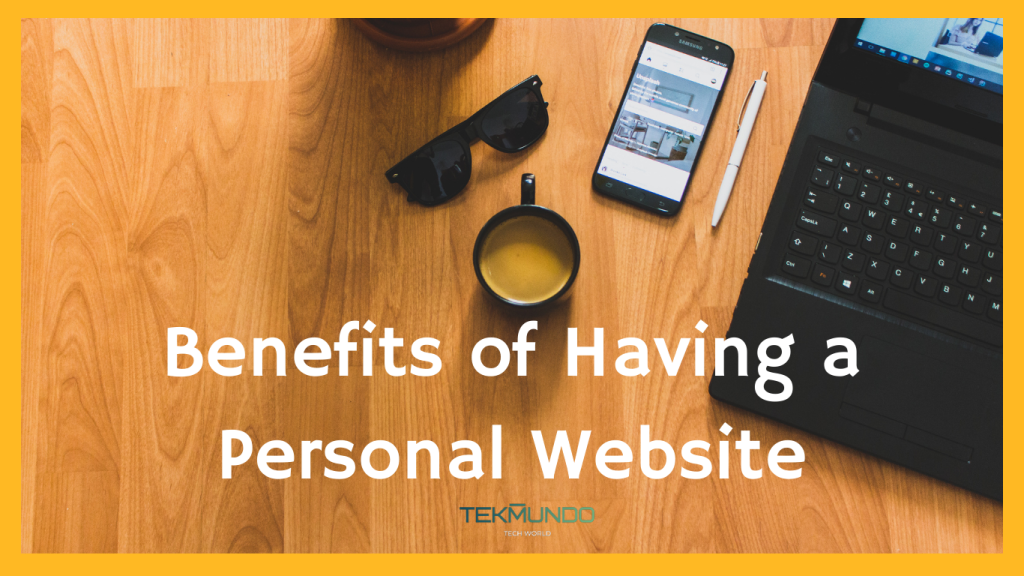In today’s digital age, personal branding is more important than ever. Whether you’re a job seeker, an entrepreneur, a freelancer, or simply someone who wants to showcase their talents and passions to the world, having an online presence can significantly boost your opportunities.
One of the most effective ways to establish and control your digital identity is by having a personal website. In this article, we’ll explore the numerous benefits of having a personal website.
Stand Out in the Job Market
A Competitive Edge
According to a survey conducted by Workfolio, 56% of all hiring managers are more impressed by a candidate’s personal website than any other personal branding tool.
Yet, only 7% of job applicants actually have a personal site. By having one, you not only differentiate yourself from other candidates but also provide a platform to showcase your work, achievements, and personality.
Showcase Your Portfolio
A personal website acts as a dynamic portfolio, enabling professionals from all fields – from artists to engineers – to display their work. This is especially crucial in creative industries where visual representation of one’s abilities can make a difference.
Build a Personal Brand
Control Your Online Narrative
The benefits of having a personal website include the ability to control your online narrative. With the prevalence of social media and other online platforms, it’s easy for misinformation or less flattering content to spread.
A personal website acts as your primary online identity, giving you more control over what people see and learn about you.
Authentic Self-expression
Your personal website is your canvas. You decide the colors, the design, the content, and every tiny detail that goes into it. It’s a platform that allows you to express yourself authentically, without the constraints and noise of social media platforms.
Networking and Opportunities
A Central Point of Contact
Consider your personal website as your online business card. It’s a central place where colleagues, potential employers, or collaborators can find your contact information. It’s more professional than a LinkedIn profile and can be tailored to represent you exactly as you wish.
Attract New Opportunities
Companies and individuals are always on the lookout for collaboration or hiring opportunities. A personal website with a well-detailed “About Me” page and a display of your skills can attract opportunities directly to your inbox.
Personal Development and Learning
Learn New Skills
Building and maintaining a personal website can be a learning experience in itself. From learning web design to understanding the basics of SEO (search engine optimization), you’ll pick up skills that are valuable in the modern digital landscape.
Document Your Journey
Think of your personal website as a diary or a journal. It can be a place where you document your professional and personal journey, sharing milestones, challenges, and learning experiences. This not only serves as motivation for you but can also inspire others.
Monetization Opportunities
Advertise Your Services or Products
One of the direct benefits of having a personal website is the potential to monetize it. Whether you’re a consultant, a photographer, or an artist, your website can serve as a platform where clients can book your services or buy your products.
Affiliate Marketing and Ads
Even if you’re not selling a service or product, there are other monetization methods available. You can explore affiliate marketing, where you promote products or services and earn a commission for every sale made through your referral. Additionally, if your website attracts a decent amount of traffic, you can consider placing ads.
Top 5 Platforms to Host Your Personal Website
Each platform has its unique strengths, so the best choice often depends on your specific needs, technical expertise, and budget.
1. Wix
- Drag-and-drop editor: No coding skills required.
- Templates: Hundreds of customizable templates for different industries.
- Wix ADI: Artificial Design Intelligence that creates a website for you based on answers to a few questions.
- E-commerce: Tools to start an online store.
- App Market: Various third-party applications to enhance your website’s functionality.
Pros:
- Extremely user-friendly, even for beginners.
- A wide variety of design templates.
- Flexible platform with options for both beginners and those with a bit more web design experience.
Cons:
- The free version comes with Wix branding and ads.
- Less flexibility for more advanced users compared to traditional CMS platforms.
- Moving your site from Wix to another platform can be challenging.
2. Squarespace
- Designer Templates: Professionally designed templates that are responsive for mobile devices.
- Content Blocks: Allows adding various content types (like text, images, videos) anywhere on your site.
- E-commerce: Built-in tools for online stores.
- Integrations: Integrates with various third-party tools and services.
Pros:
- Beautifully designed templates.
- All-in-one platform with hosting included.
- Great for portfolio sites and small businesses.
Cons:
- Less flexibility compared to platforms like WordPress.org.
- Might be slightly more challenging for absolute beginners compared to Wix.
- Limited third-party integrations compared to other platforms.
3. WordPress
- Gutenberg Editor: Block-based editor for adding content.
- Themes: Thousands of themes available.
- Plugins: Extend functionality with plugins.
- Integrated Social Sharing: Easily share content on social platforms.
Pros:
- Great for blogging with strong content management features.
- The potential to switch to WordPress.org for more flexibility.
- A vast community offering support and additional resources.
Cons:
- Can be confusing for beginners due to the difference between WordPress.com and WordPress.org.
- The free version includes WordPress.com branding.
- Custom plugins and themes are limited unless you opt for a Business plan.
4. Weebly
- Drag-and-drop builder: Simple design process.
- Templates: A variety of designs to choose from.
- E-commerce: Built-in tools to create an online store.
- App Center: Extend your site’s functionality.
Pros:
- Intuitive and beginner-friendly.
- All-in-one solution with hosting included.
- Reasonably priced plans.
Cons:
- Less advanced than some competitors.
- Limited customization capabilities for more complex sites.
- Fewer integrations than platforms like WordPress.
5. Webflow
- Visual CMS: Design your site visually while the platform takes care of the coding.
- Interactions and Animations: Advanced animations without writing code.
- E-commerce: Tools for online stores.
- Templates: Both free and premium templates available.
Pros:
- A mix of visual design and coding offers flexibility.
- Perfect for designers who want more control over their site’s look.
- Hosting is optimized for performance.
Cons:
- Steeper learning curve compared to pure drag-and-drop builders.
- Can be pricey for some users.
- Less suited for those who want a simple and straightforward platform.
Conclusion
The benefits of having a personal website are manifold. In a world where our online presence can significantly influence opportunities and perceptions, it’s wise to invest in a platform that you have full control over.
Whether it’s to stand out in the job market, build a personal brand, network, or even earn money, a personal website serves as a versatile tool to achieve multiple objectives.
For those still contemplating, remember that in today’s digital age, not having an online presence can be equated to invisibility in many professional circles. So, embrace the benefits of having a personal website and embark on the journey of crafting your unique online identity.






